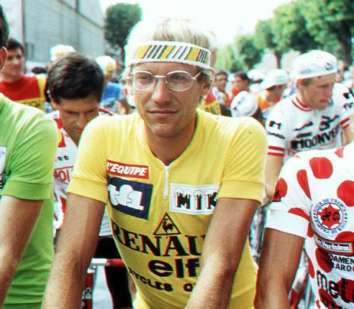You Can Discover – Remembering John Martyn
Years ago I got hold of the Island Records’ John Martyn best of, Serendipidy. I was easily seduced by the slurry vocals and intricate fingerstyle playing. Like thousands of others, I quickly learnt ‘May you Never’ on the guitar, although never quite mastering that famous ‘slappy thumb’ technique he made his own). I was less keen however on the echoplex jazz experimentation – wishing he had continued down his folksy path. Ralph McTell, who was a contemporary of the Les Cousins folk scene in the late sixties (they all thought that was the name of the bloke who owned the club) thought much the same thing.

Having read John Neil Munro’s excellent 2007 biog, Some People Are Crazy, and using the browsing power of iTunes, I decided to give John Martyn another go, and was rewarded in spades. Essentially, everything up to 1980 is fantastic. The early acoustic things are ridiculously likable – from the sweet-as-sherbert version of ‘Singin’ in the Rain,’ the hippy-trippy idealism of ‘Woodstock’ and melt in your mouth cover of ‘Don’t Think Twice it’s Alright’ where he manages to improve on Dylan’s melody. Even whimsical tunes on The Tumbler like ‘Sing a Song of Summer’ and ‘Fishin’ Blues’ are charming. His energy and look-at-me guitar playing sell even the slightest material.
The real revelation however, is the album Inside Out, which combines richly melodic fare such as ‘Fine Lines’ – (lovely to hear John totally into the music in his spoken ‘it felt natural’ intro) with more sophisticated electric playing. World music, jazz inflections and hypnotic riffs make it plain why Martyn found this direction more intriguing. Once you get into the One World album with its trippy grooves (especially on Dancing and Big Muff), the satisfactions are deeper still. The acoustic years seem lightweight in comparison.
The decline then, after 1980’s Grace and Danger, with its more mannered production (the stinging version of Johnny Too Bad’ an exception) is all the more disappointing. There are a couple of later gems on Sapphire (a haunting version of Somewhere Over the Rainbow – apparently recorded as a joke and fittingly, a minor hit in Germany) and the poppy Fisherman’s Dream. After that, unfortunately there is really nothing but synthesizers and false comebacks. He just seemed to lose his mojo – much like Stephen Stills in 1974; the tunes just stopped coming.
Munro’s biography probably hasn’t won Martyn any new sympathisers – his prickliness, unreliability and unfailing ability to say exactly what was on his mind in any given situation won him few friends, especially when the booze got the better of him. Some of the images are at once fascinating and pitiful – when he is taken in by a friendly pub landlady in the mid eighties, she finds him slumped on the floor by the kitchen fridge eating their supply of lobsters.
Lobsters aside, you could do much worse than spend an hour discovering the soulful, original body of work John created in the sixties, seventies and early eighties. There’s nothing around now that comes close to it.
OVER THE HILL
He was the man who was always singing
the gifted tramp, who wore his overcoat
on the hottest days; whose melodies
smoked from his mouth. He followed
his bright, unlucky self around the village.
The Charlie Mingos of Lanarkshire; his pockets
spilled over with apples and plectrums.
He stumbled the streets, made faces
at the kids, who knew nothing of the way
he could bend the air around him, or
conjure light from a guitar with a bear’s claw.
They only knew of his pints of Barcardi
and how mid afternoon he would growl songs
to his answerphone inside a red phone box.



